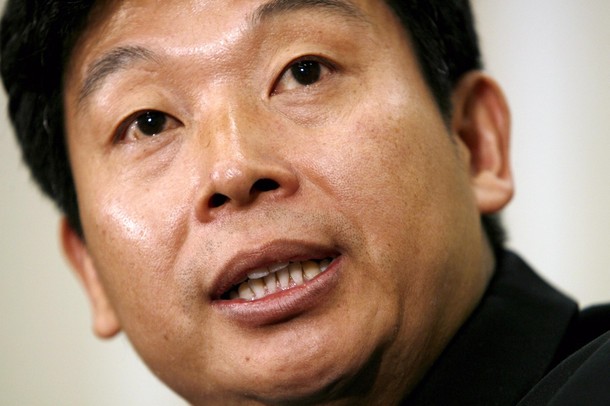
Human rights defender's story: Dr Jianli Yang from China
Jianli Yang is the founder and president of Initiatives for China, also known as Citizen Power for China. He has been politically active for a better China since witnessing the horrors of Tiananmen Square in 1989. He was imprisoned from 2002-2007.
Dr Jianli Yang is a Chinese human rights defender, and founder and president of Initiatives for China, also known as Citizen Power for China (CPFC). Jianli has been politically active for a better China since witnessing the horrors on Tiananmen Square in 1989. For this political activism, he was imprisoned in China in 2002, and released in 2007. He has been denied access to his home country and currently resides in the United States. He says he does not regret the personal ‘sacrifices’ he has made in pursuing his cause, since these are inevitably part of the path he chose to take, and therefore, are worth doing.
“Whether we have made any progress in our fight for a better Chinese society? The answer is yes.”
The China of today is completely different compared to the China of 25 years ago. According to Jianli, the most important change has taken place in the people themselves. The concept of democracy has gradually prevailed in the minds of the general public, thanks to the dozens of years of efforts by pro-democracy activists both in and outside China and their international supporters. As a result of their activism, the Chinese government faces a completely different domestic and international environment today, and can no longer ignore discussions on human rights issues. It has to engage in human rights dialogues with the international community. The biggest advance in human rights in China has been the activists themselves, Jianli says. They took the initiative and pushed the regime to make some reforms. Naturally, this was done without the Chinese Government giving any credit to the efforts of the activists.
“When the “tipping point” arrives, the Chinese people must be prepared to seize the opportunity to effect a secure, peaceful, and organized transition to a democratic government.”
Jianli is the founder of the CPFC and wants to construct a platform of intellectual leadership and grass root activities to inspire and enable democratic forces within and outside China. The strategy consists of combining the creation of international support on the one hand, and a strong domestic constituency on the other. One of the issues CPFC is focusing on currently is freedom of political prisoners.
The CPFC regrets that no State made mention of individual cases of political prisoners or human rights defenders during the Universal Periodic Review (UPR) of China on the 22nd of October 2013. However, Jianli expresses particular appreciation to Canada for raising the issue of political prisoners, and recommending China to release them. The overall process of the Chinese UPR was disappointing, but Jianli does acknowledge a few positive signs by China to reform the re-education through labour system, expedition of the process of ratifying the International Covenant on Civil and Political Rights, and realising what China calls ‘the dream of human rights’.
However, the CPFC continues to doubt China’s sincerity in this regard. The ‘dream’ is in direct contradiction to earlier statements by the delegation during the UPR. Jianli particularly finds the Chinese silence on the detention of Cao Shunli, a Chinese defender detained when boarding a plane to attend a training at ISHR, very disappointing.
“China’s stubborn reactions against UPR scrutiny have once again proven that it is unfit to join the UN Human Rights Council.”
Another issue that the CPFC is working on is blocking China from becoming a member of the United Nations Human Rights Council. According to Jianli, the last UPR session shows that China is nowhere near ready to accept a leadership role in the Human Rights Council. The CPFC will continue to oppose Chinese membership until China has taken concrete steps to improve the human rights situation. The elections for the Human Rights Council will be held in mid-November, and China will most likely win a seat. Jianli acknowledges that the campaign to block Chinese membership will not succeed, but it is nevertheless worth doing in order to raise awareness and to bring more pressure to bear. This particular campaign is part of CPFC’s broader goals: spotlight the true human rights situation in China to the international community, generate international pressure to ensure the release of political prisoners, and lastly, convince States to pressure China to ratify the ICCPR.
Nienke Boskma is an Intern with the International Service for Human Rights.
For more information on Dr Jianli Yang and the work of the CPFC see http://www.initiativesforchina.org/
